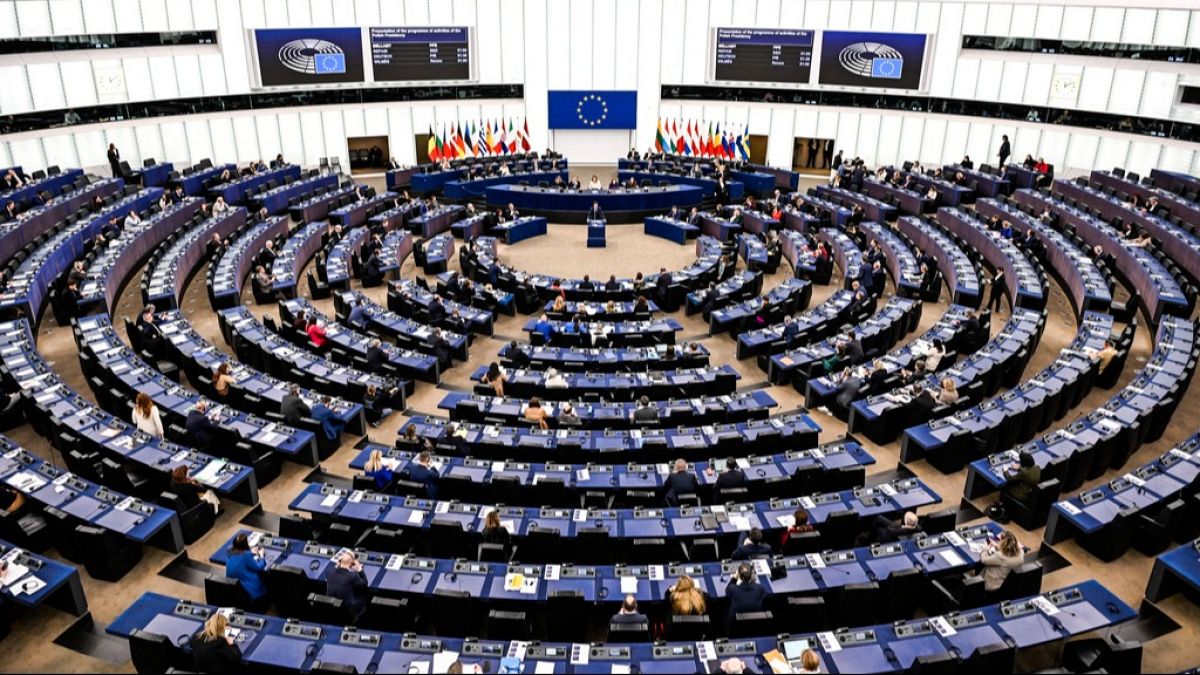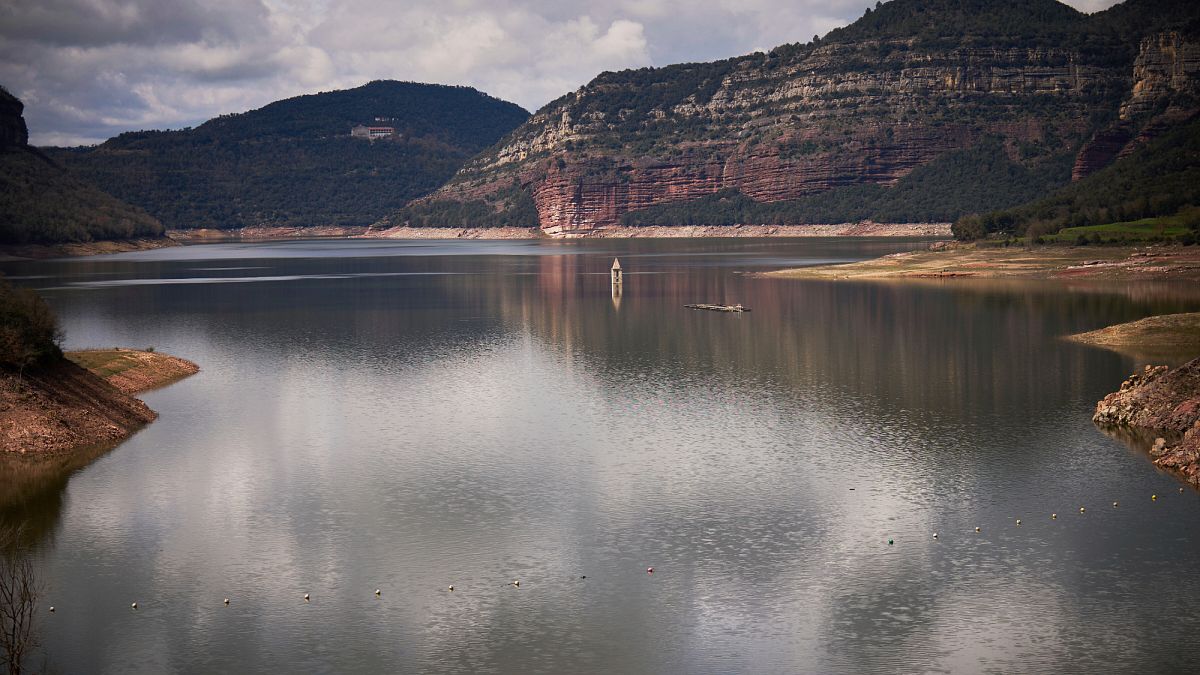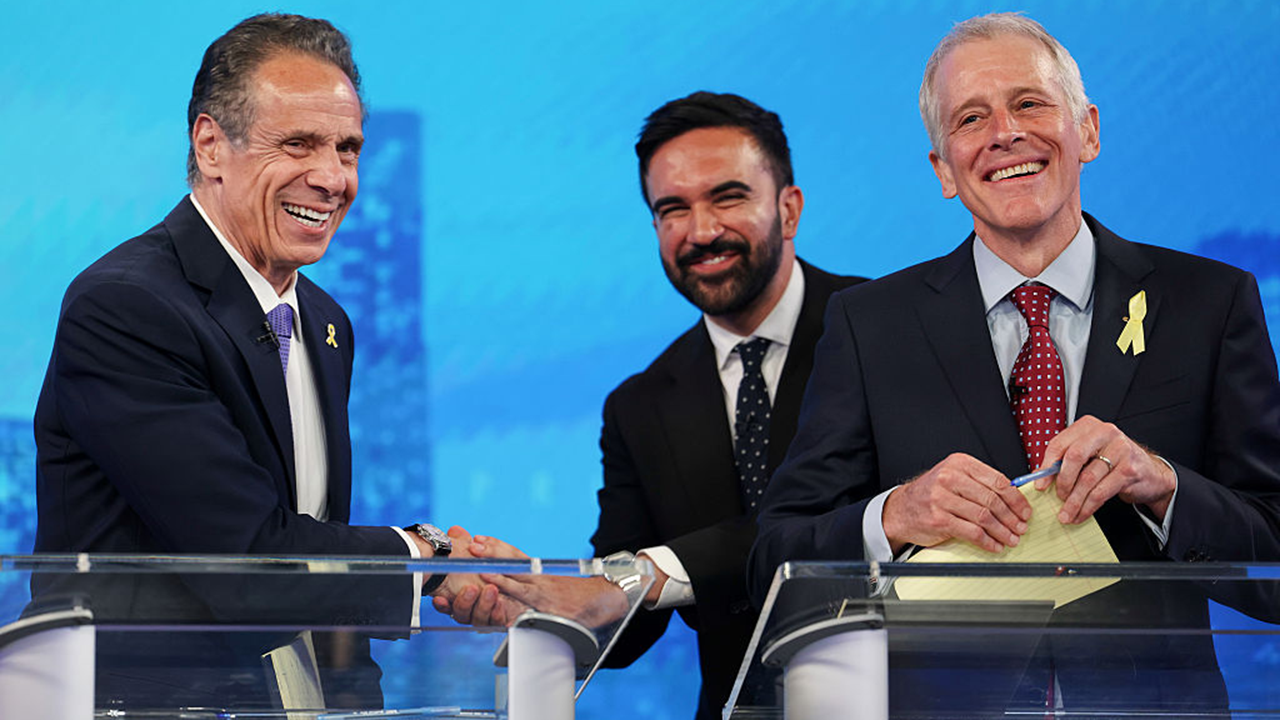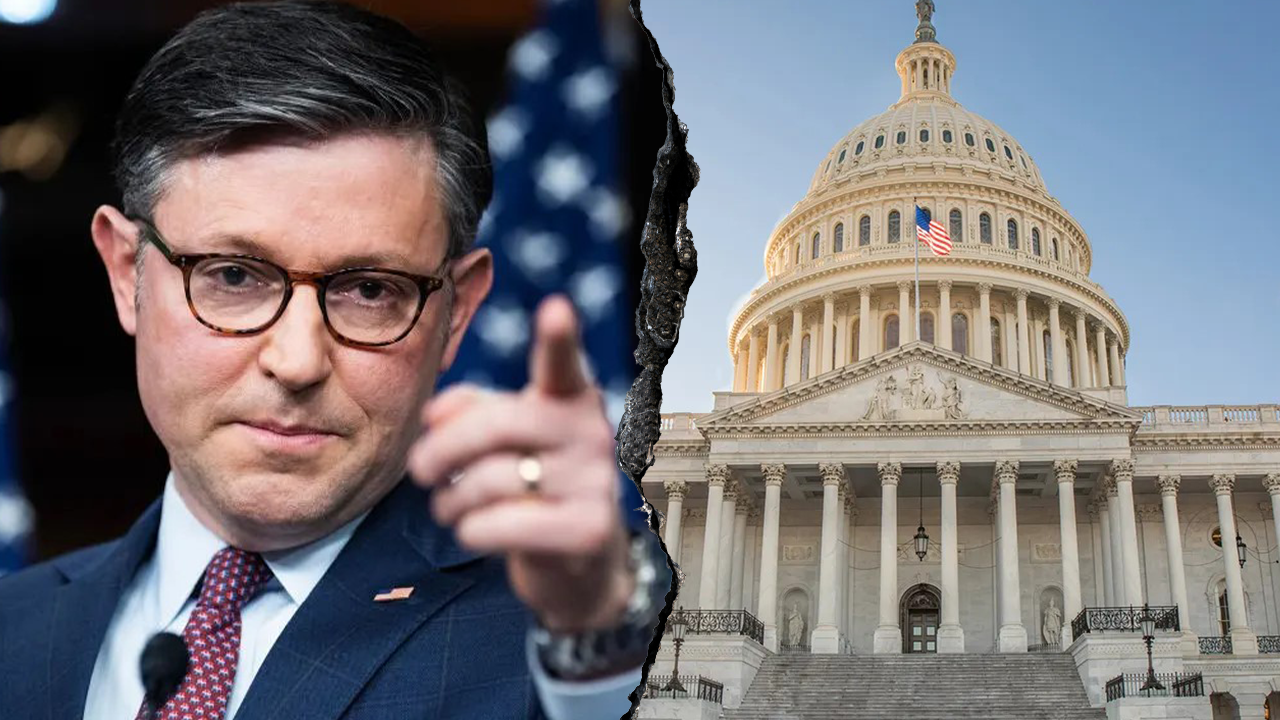World
The EU has to seek answers that go beyond short-term energy subsidies
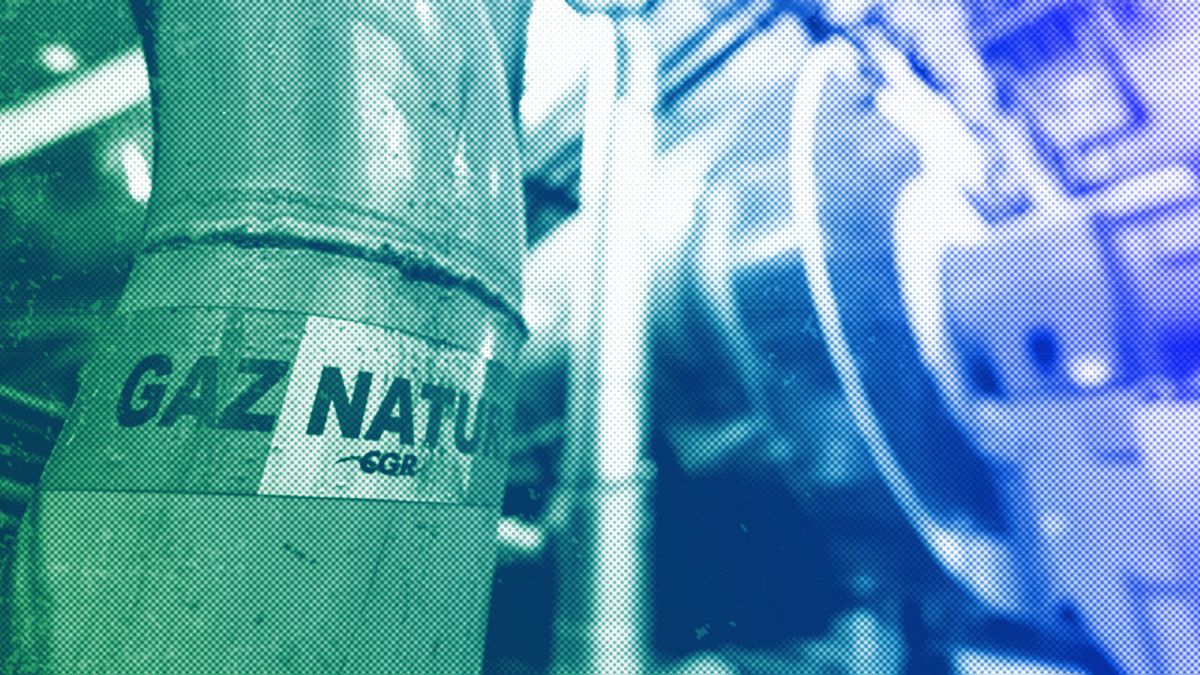
The opinions expressed in this article are those of the author and do not represent in any way the editorial position of Euronews.
Brussels wants to extend regulations that permit EU member states to subsidise energy prices. While the sentiment behind this is to be lauded, the reality is that interventionism will ultimately distort the natural behaviour of the EU market and undermine its very future, Szymon Kardaś writes.
While the cost of electricity in Europe has stabilised through 2023, the prospect of a new price hike remains high for many EU member states like Poland, Hungary, Czech Republic, Austria, Lithuania, Latvia and Romania.
A pan-European reliance on imports, together with rising energy demands, continues to threaten market stability.
Moreover, unit costs, while not fluctuating to the extremes of last winter, are still stubbornly high in many countries including Denmark, Italy and the Netherlands, as well as the EU’s leading economy, Germany.
To alleviate some of the risks posed to member states, the European Commission recently extended the use of supporting instruments first introduced in 2022. On 20 November, it agreed to extend several regulations by six months, including the Temporary Crisis and Transition Framework.
This will allow members to provide aid to national entities, should electricity prices exceed the levels before the energy crisis, and has been followed up with proposals that would extend other anti-crisis measures, such as gas solidarity measures, the Market Correction Mechanism and rules related to permit-granting for renewable energy projects, into next year.
Frustration with crisis solutions grows
This interventionalist approach has landed well in many member states, and, for some incumbent administrations, is being used for their political gain ahead of the European elections in May.
Last month, Germany’s ruling coalition agreed on rules to provide aid to the energy-intensive industry; a programme set to run until 2028, with an estimated €28 billion budget.
Countries such as France and Poland are also among those in favour of maintaining subsidies, with the soon-to-be-formed Polish government announcing that they will maintain the electricity and gas price freeze for selected groups of consumers in 2024.
Beyond the protection of vulnerable groups of electricity consumers, one of the main arguments for maintaining the support measures is the fear of loss of competitiveness, and the risk that, due to high energy prices, European companies will consider migrating operations to the US or China.
Yet, in some EU countries, there is growing frustration at the continuance of crisis solutions, including Belgium, the Netherlands, Denmark, Estonia, and Finland, where politicians have pointed out that electricity prices have firmly stabilised over the year, and that maintaining special state aid rules is harmful to the EU market.
Subsidising favours the richer countries
While the risk of an increase in electricity prices in the EU over the next year exists, and the extension of some of the anti-crisis measures to 2024 seems fully justified, in the longer term, Brussels should be minded towards reducing the scope for subsidies. And there are several reasons for this.
First, subsidising electricity prices is extremely costly. According to the 2023 Report on Energy Subsidies, they have risen to €181bn across the EU in 2022 and could reach €194bn in 2023.
Second, maintaining the possibility of subsidising electricity prices in the long term might harm the EU energy market, deepening inequalities between member states, as a consequence of a subsidy race phenomenon, which disproportionately benefits richer countries.
This is well illustrated in the figures for 2022, which show that of the total amount of state aid approved by the EU, 53% went to Germany and 24% to France.
Divisions and headaches loom for 2024 and beyond if this behaviour becomes commonplace.
It also threatens the very existence of the European market, if the European Commission signals its intent to further extend certain anti-crisis regulations without proper appraisal.
The political leadership in Brussels should ensure they strictly assess the legitimacy of the provision of state aid in specific cases if interventionism is to persist in the short to medium term.
While, for member states, emphasis should turn to completing ongoing legislative amends to the electricity market design as soon as possible.
EU’s energy mix has to grow stronger
European Commission President Ursula von der Leyen spelt out some of the reforms needed to provide resilience back in 2022.
The new electricity market design aims to create a more flexible, competitive, and consumer-friendly electricity market, better able to accommodate the growing share of renewables in the EU’s energy mix.
It is now up to member states to close on the details of this proposal for legislative changes and bring forward regulations specifying, among other things, rules on investment for the expansion of generation capacity, such as renewable energy storage and nuclear power.
If they can do this, and veer away from subsidisation as a default response, there is an opportunity to stabilise electricity prices in Europe for the long term and reduce dependency on fossil fuels as primary sources of energy.
Such action, by members across the EU 27, would also encourage investment in Europe as a green energy global leader, and, importantly, provide underpinning to the EU and its ability to withstand future geopolitical shocks.
Szymon Kardaś is a senior policy fellow on energy within the European Power programme at the European Council on Foreign Relations (ECFR).
At Euronews, we believe all views matter. Contact us at view@euronews.com to send pitches or submissions and be part of the conversation.

World
World oil demand to keep growing this decade despite 2027 China peak, IEA says

World
Israel's US ambassador says beeper operation will 'seem simple' compared to what is planned for Iran
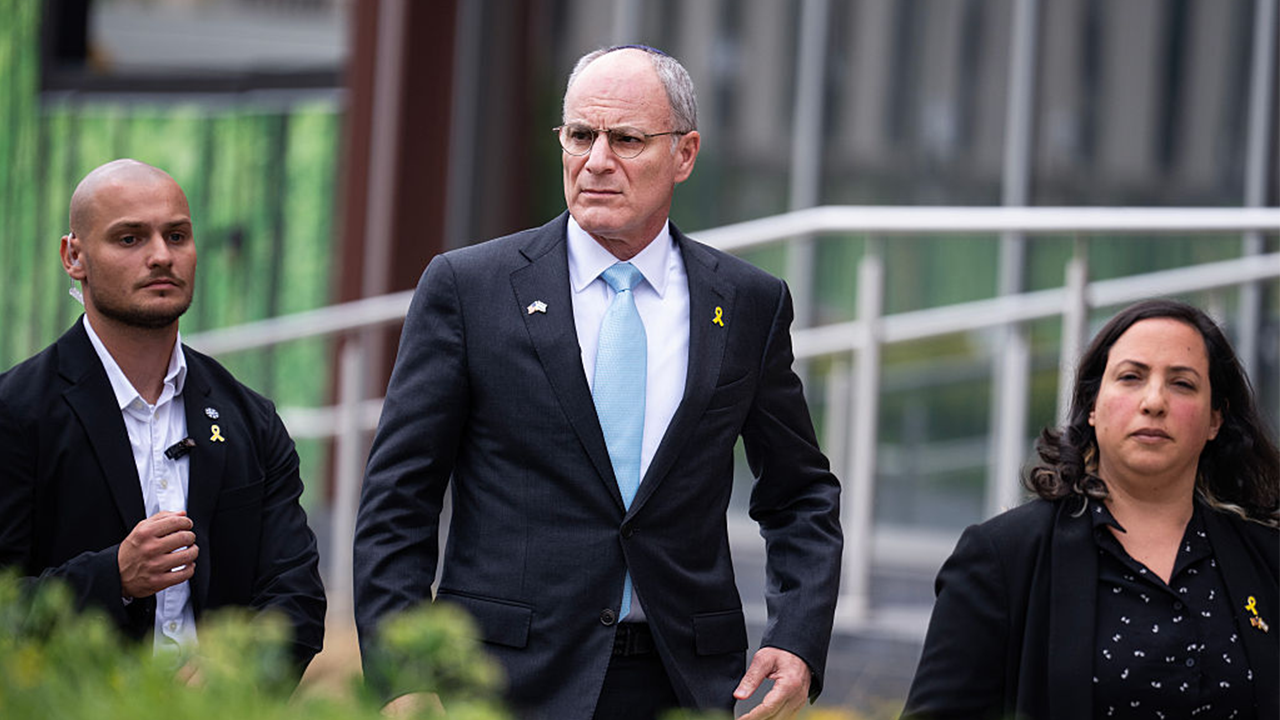
NEWYou can now listen to Fox News articles!
Israel’s Ambassador to the U.S. Yechiel Leiter said there will be some surprises amid the Jewish State’s conflict with Iran that will make Israel’s explosions of pagers and walkie-talkies used by members of Hezbollah in Lebanon and Syria last year look “simple.”
“We’ve pulled off a number of surprises,” Leiter said during a Tuesday appearance on the TV network Merit Street.
“When the dust settles, you’re going to see some surprises on Thursday night and Friday that will make the beeper operation almost seem simple,” he continued.
Leiter was referring to near-simultaneous detonations of pagers used by members of the Iran-backed Hezbollah terror group that killed at least 12 people, including two children, and wounded nearly 3,000 on Sept. 17 in Lebanon and Syria. The following day, at least 25 people were killed and more than 600 were wounded when walkie-talkies were detonated in the region.
TRUMP, RUBIO CUTTING G7 TRIP SHORT, RETURNING TO DC AS CHATTER INDICATES IRANIANS FLEEING TEHRAN
Israel’s Ambassador to the U.S. Yechiel Leiter said there will be some surprises that will make Israel’s beeper operation look “simple.” (Getty Images)
Israel was subsequently found to be behind the attacks, in which small amounts of explosives hidden in the devices were detonated. A U.S. official told The Associated Press at the time that Israel briefed the U.S. government after the attacks.
But then-Secretary of State Antony Blinken said the U.S. “did not know about, nor was it involved in, these incidents.”
Leiter on Tuesday also posted a video message on X that was recorded outside the Situation Room in the Israeli Embassy in Washington, D.C., where he explained that Israel was “not in the business of regime change.”
MIKE JOHNSON CALLS OFF ISRAEL TRIP AMID IRAN CONFLICT

Israel’s Ambassador to the U.S. Yechiel Leiter said Israel was “not in the business of regime change.” (Getty Images)
“Today we continue to peel back the surface-to-surface missile systems that are spread throughout Iran. We’ve reached the point where between a third and a half have been demolished,” he said. “We hit today the broadcast center in the middle of Tehran after we informed the people living in the vicinity to leave. Hundreds of thousands of Tehranis have escaped Tehran to be out of the line of danger. And we took out the broadcast system. This is very important because this serves the mullahs and their information campaign, the propaganda campaign throughout.”
“Iran, to incite the public and to warn the public against any kind of demonstrations against the government,” the ambassador continued. “A lot of questions have been asked today about regime change. In many of the interviews that I gave, that was the key question. We’re not in the business of regime change. We’re interested in neutralizing the threat to our existence through a nuclear weaponization program in Iran and a ballistic missile program.”
Iran has maintained that its nuclear program is peaceful, and U.S. intelligence agencies and the International Atomic Energy Agency have said Iran was not pursuing a nuclear weapon.
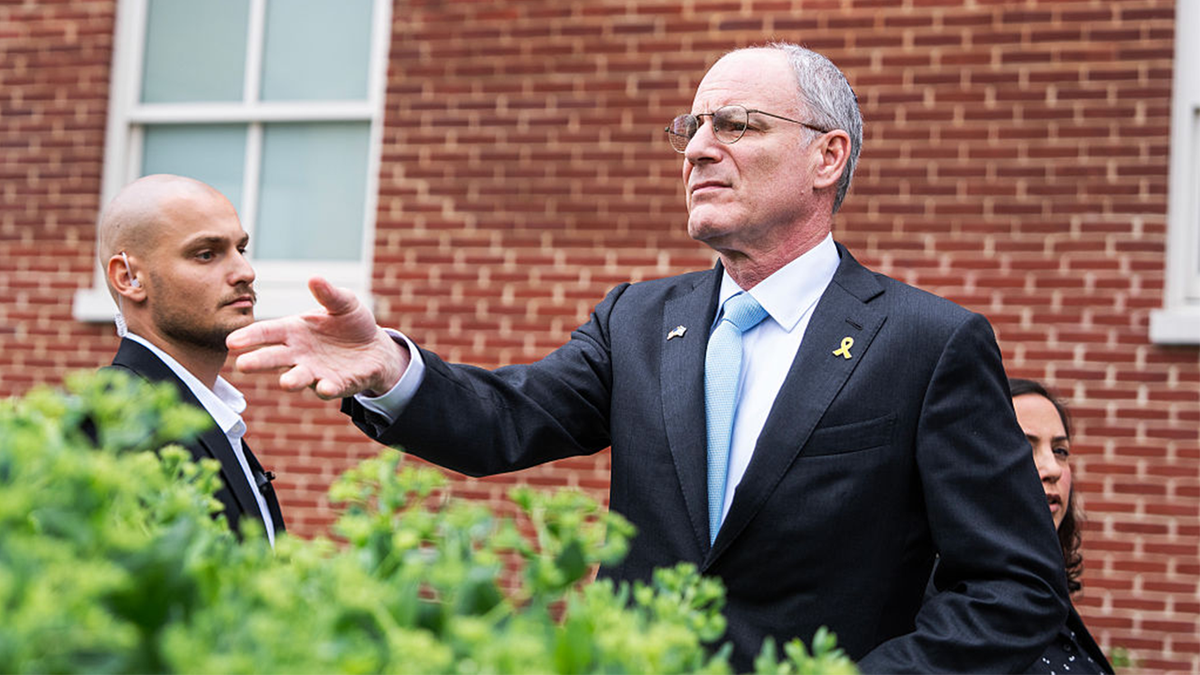
Israel’s Ambassador to the U.S. Yechiel Leiter said the Jewish State has “pulled off a number of surprises.” (Getty Images)
“If the Iranian people rise up and change their regime, that’s their choice,” Leiter said. “And if we play a role in facilitating that eventuality, then history will judge us favorably, I believe. It’s important also to emphasize that our economy remains strong and resilient despite the war, and the stock market in Israel once again, for the second day in a row, continued to rise.”
“We are working very hard to assist those stranded both in Israel wanting to leave and those wanting to get back to Israel, to their families, to their positions in society and the army,” he added. “And we’re hoping to find solutions through our neighbors in the next couple of days. We continue to press on. We continue to press forward. And we thank you for your support and prayers.”
Fox News’ Greg Norman and Jennifer Griffin contributed to this report.
World
Coal-hooked Poland constructs first ever offshore wind farm
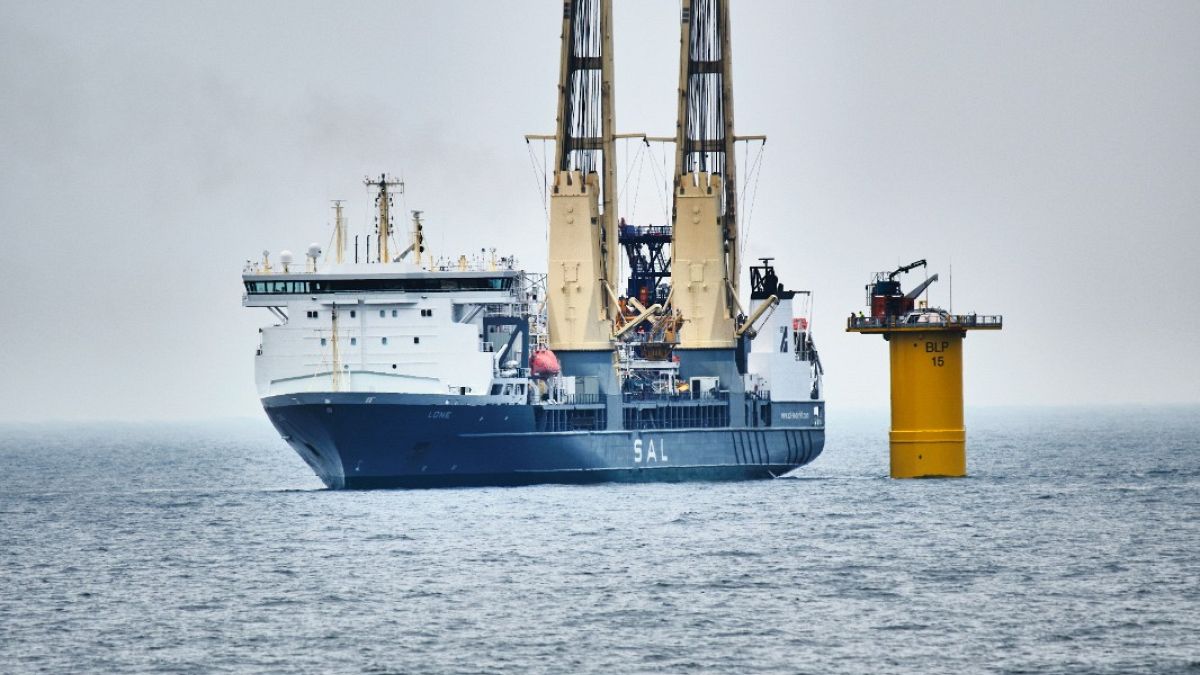
Published on
Once reliant on coal for the majority of its electricity, the country of 36 million that currently holds the EU rotating presidency is trying to reduce its dependence on the fossil fuel.
With many mines becoming unprofitable and old infrastructure in decline, the Polish government of Prime Minister Donald Tusk has planned a gradual closure of coal facilities in the south of the country. As the coal regions of the country come to terms with this shift, northern Poland adjacent to the Baltic Sea is booming.
Ignacy Niemczycki, the deputy minister in the Chancellery, briefed a handful of Brussels-based journalists on board the Jantar passenger ship, telling Euronews that the wind farm should have a lifecycle of up to 30 years and be a major part of the energy transition.
“It’s in the interest of the Polish economy to invest in renewables, nuclear, and gas to stabilise the grid,” the minister told Euronews.
Baltic Power – a joint venture between ORLEN and Northland Power
Situated 23 kilometres off the northern coast near Choczewo and Łeba, the wind farm is among the most advanced renewable energy projects in the Polish Economic Zone. The final installed capacity of the project is expected to reach 1140 MW, enough to supply electricity to approximately 1.5 million Polish households.
Poland also to invest in nuclear
Renewables will only be one part of the Polish energy mix. Plans for the first ever nuclear plant, which will also be located on Poland’s northern Baltic Sea coast, were put in place under the former Law and Justice (PiS) government and have been continued by Prime Minister Donald Tusk’s current ruling coalition.
Niemczycki told Euronews that a second nuclear project is being considered and Poland is keeping a close eye on Canada as it experiments with the first ever mini nuclear plant, known as a Small Modular Reactor (SMR). SMRs could can potentially power up to 300 MW(e) per unit.
“We will see a major change in Poland’s energy mix over the next 15 years,” said Niemczycki. “Nuclear will become the new baseline, with renewables and gas providing flexibility and stability.”
-

 News1 week ago
News1 week agoA former police chief who escaped from an Arkansas prison is captured
-

 Technology1 week ago
Technology1 week agoXbox console games are suddenly showing up inside the Xbox PC app
-

 Arkansas1 week ago
Arkansas1 week agoTennessee baseball coach Tony Vitello has funny apology on ESPN at super regional vs Arkansas
-

 Technology1 week ago
Technology1 week agoMassive DMV phishing scam tricks drivers with fake texts
-

 Politics1 week ago
Politics1 week agoVideo: Why the U.S. Brought Back Kilmar Abrego Garcia
-

 World1 week ago
World1 week agoColombia’s would-be presidential candidate shot at Bogota rally
-
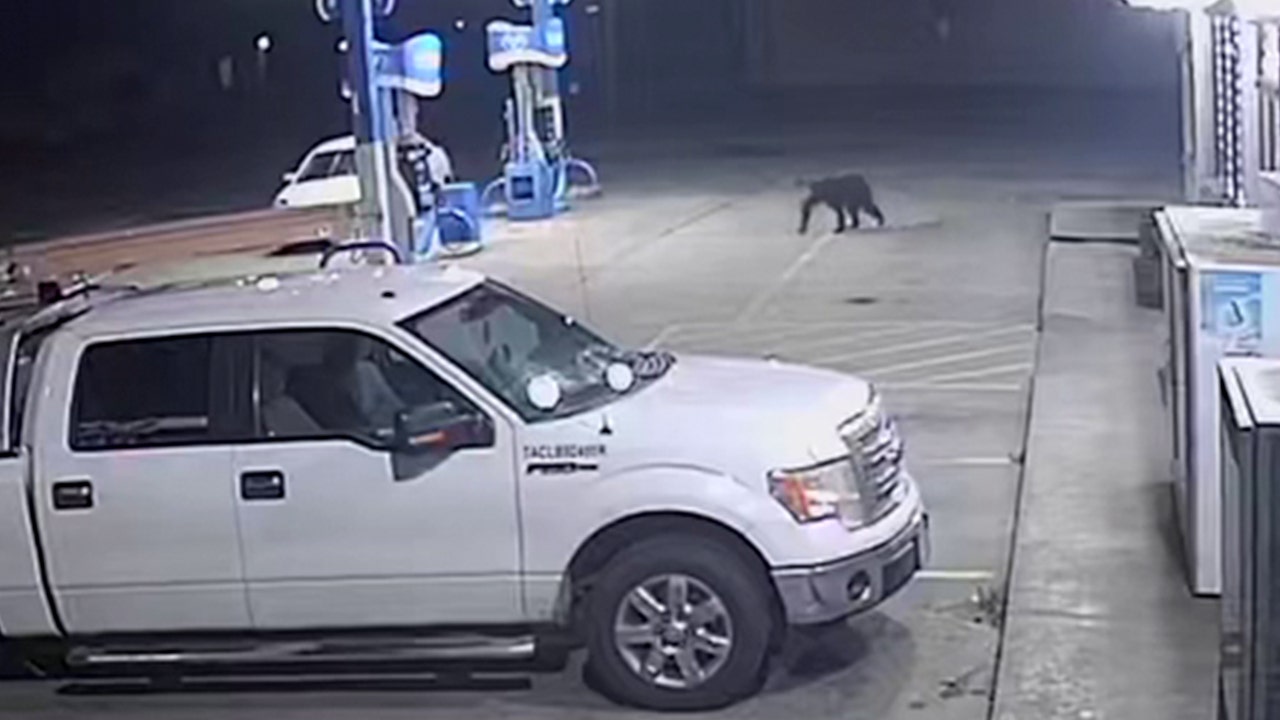
 Texas1 week ago
Texas1 week agoBlack bear spotted at North Texas gas station
-
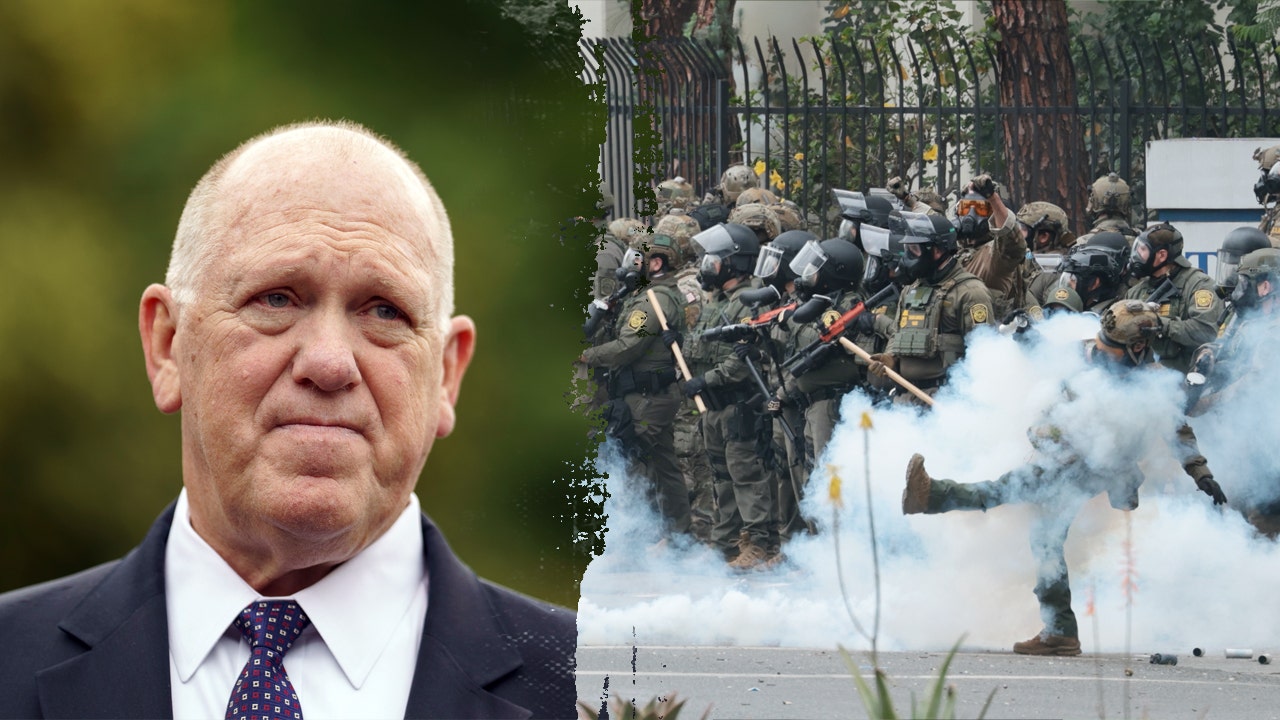
 Politics1 week ago
Politics1 week agoNational Guard to be deployed in Los Angeles County as anti-ICE protests rage: border czar Tom Homan

